 by Diane Dimond
by Diane Dimond We are a pill-popping culture. We take pills to sleep, wake up, get happy, keep our children less hyper. And while people might not realize it, sharing prescription drugs, using false names to get prescription drugs or shopping around to get more than one doctor to prescribe extra prescription drugs are all against the law.
It used to be that law enforcement worried only about illegal drugs like marijuana, cocaine, heroin and methamphetamines. Now they’re dealing with the criminal aftermath of a record number of people getting high on prescription drugs: Deadly car accidents, domestic abuse, sex offenses -- all committed by people too impaired to control themselves. Addicts of prescription drugs have been known to commit crimes to pay for their pills once their insurance runs out.
Health-care providers and law enforcement will tell you prescription-drug abuse results in the same problems as street drugs: addiction, crime and broken families.
So how bad is the problem? Hold on to your hats for some brand new, jaw-dropping statistics from the Drug Enforcement Administration: seven million Americans are regularly abusing prescription drugs – not just taking them, abusing them. The drugs of choice are powerful pain killers like oxycodone (the generic name for an opiate-type drug sold under three different brand names), Percocet (known as Tylenol 3; brand name for acetaminophen with oxycodone) and Vicodin (acetaminophen with hydrocodone, another opiate-type drug).
The DEA has been studying this for years, so comparisons are easy. In the year 2000, 3.8 million Americans abused painkillers. The latest figure of seven million marks an 80 percent increase!
Prescription medications now cause more overdose deaths than cocaine and heroin combined.
If that stuns you – and I hope it does – get this: It’s not just painkillers Americans depend on to get through the day. There has also been a massive jump in anti-depressant presc riptions. It seems inconceivable, but 27 million people are currently taking anti-depressants like Paxil and Prozac, according to a new report in the Archives of General Psychiatry.
riptions. It seems inconceivable, but 27 million people are currently taking anti-depressants like Paxil and Prozac, according to a new report in the Archives of General Psychiatry.
There seems to be the feeling that if a doctor prescribes it, it‘s okay to take, that prescription meds are somehow safer than street drugs. It isn’t true. Many prescription drugs have a high potential for abuse, and patients can get hooked before they realize what’s happening. Some people get so used to taking a drug their bodies begin to crave more and more of it, and they die of a self-induced overdose.
Look, lots of patients have pain and depression and truly need these drugs, there is no denying that. Probably a lot of the increase in the skyrocketing number of prescriptions can be traced to the stress of life in the United States post September 11th, 2001; to the miserable state of the economy we’ve all had to deal with; and a decline in psychotherapy sessions after many insurance companies restricted payments.
But there’s also real criminality involved here. There are doctors who act illegally when they continue to prescribe or over-prescribe to someone they believe is an addict. There are pharmacies dispensing far too many pills to one household and ignoring the red flag of possible addiction. And there are scads of rogue “pharmacy” Internet sites illegally selling controlled substances. If they run out of doctors to write scrips, addicts often turn to these cyber-drug dealers. The web sites rake in profits -- millions of dollars per month.
Lawmakers have been talking about the potential for a prescription-drug abuse epidemic in America for more than a decade. Now, with a total of 34 million patients currently taking painkillers or anti-depressants, I think we’ve hit the epidemic level. As fast as authorities shut down careless pharmacies and illegal Internet sites, or strip offending doctors of their prescription privileges, others step in to take their place. In the last three years, tens of millions of doses of prescription drugs, and tens of millions of dollars in assets have been seized. But the seizures have done nothing to stem the growth of the problem.
The most depressing part of this mess is that it’s destined to get worse. Our children are lea rning awful lessons from our pill-popping behavior. And it’s easy for them to simply slip a few of their parents' prescription drugs out of the medicine cabinet. Don’t imagine your kids wouldn’t think about it. The DEA reports nearly one in 10 high school seniors admit to abusing drugs that weren’t prescribed to them.
rning awful lessons from our pill-popping behavior. And it’s easy for them to simply slip a few of their parents' prescription drugs out of the medicine cabinet. Don’t imagine your kids wouldn’t think about it. The DEA reports nearly one in 10 high school seniors admit to abusing drugs that weren’t prescribed to them.
Our kids aren’t stupid. They see the campaign against hard street drugs and then watch us down all sorts of prescription drugs as though nothing bad can happen.
Bad happens. And we should all spread the word.








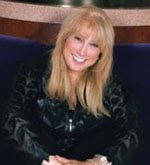
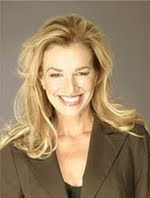


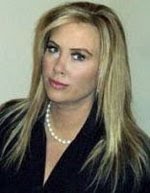
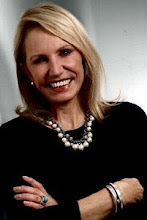
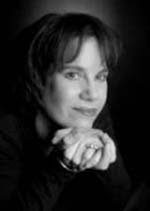
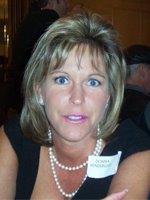

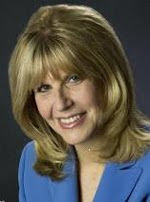





5 comments:
I do not think antidepressants, the treatment for clinical depression, should be classed with drugs of abuse. Clinical depression is a killer-- it has a 20% case fatality rate. In the past, because of the horrible stigma attached to any sort of mental illness, depression was under-diagnosed. I think we should be applauding people who are depressed who are brave enough to accept that fact and move to treat their illness.
The increase of anti-depressant prescriptions results from scientific progress -- development of medications in the last 20-30 years that treat depression as an often-chronic, chemical dysfunction of the brain.
The brain is a physical organ like any other, and depression is a physical illness.
The comments in this blog show the unfamiliarity with depression that led to a stigma patients are still fighting.
The era of days on the couch have been replaced by medications prescribed and monitored by doctors.
Anti-depressants are not "happy" pills. Sorry, but no matter how many you take, they won't get you high.
Anti-depressants sure aren't "happy pills". I took Wellbutrin for years. It allowed me to function, but I wasn't very happy.
A change of diet, Omega-3 fish oils and regular exercise did more for me than anti-depressants ever did.
I am someone with chronic pain. I have an auto-immune disease that causes large sterile very painful abscesses- many get to golfball size. It's also started to erode the bones of my hands and feet. The bone pain is horrible too. Finally my doc put me on oxycontin 20mg twice a day with percocet for break through pain. It's saved my life because I was so close to just ending it all. For us with real chronic pain these other people are going to make it so hard to get the pain relief that we so badly need. Sigh
While I have compassion for those with debilitating and chronic pain and depression, I feel that the state of our doctors has placed them in a category of being no better than the gansta on the corner pushing crack.
I have a family member who has chronic pain, suffers from depression and a family member who committed suicide, so I'm familiar with the heartache of these things.
However, with too many pharmaceuticals being handed out for free by doctors from their offices, and prescriptions for side affects of prescription drugs, what makes them different?
Oh yea, it's legal!
Post a Comment